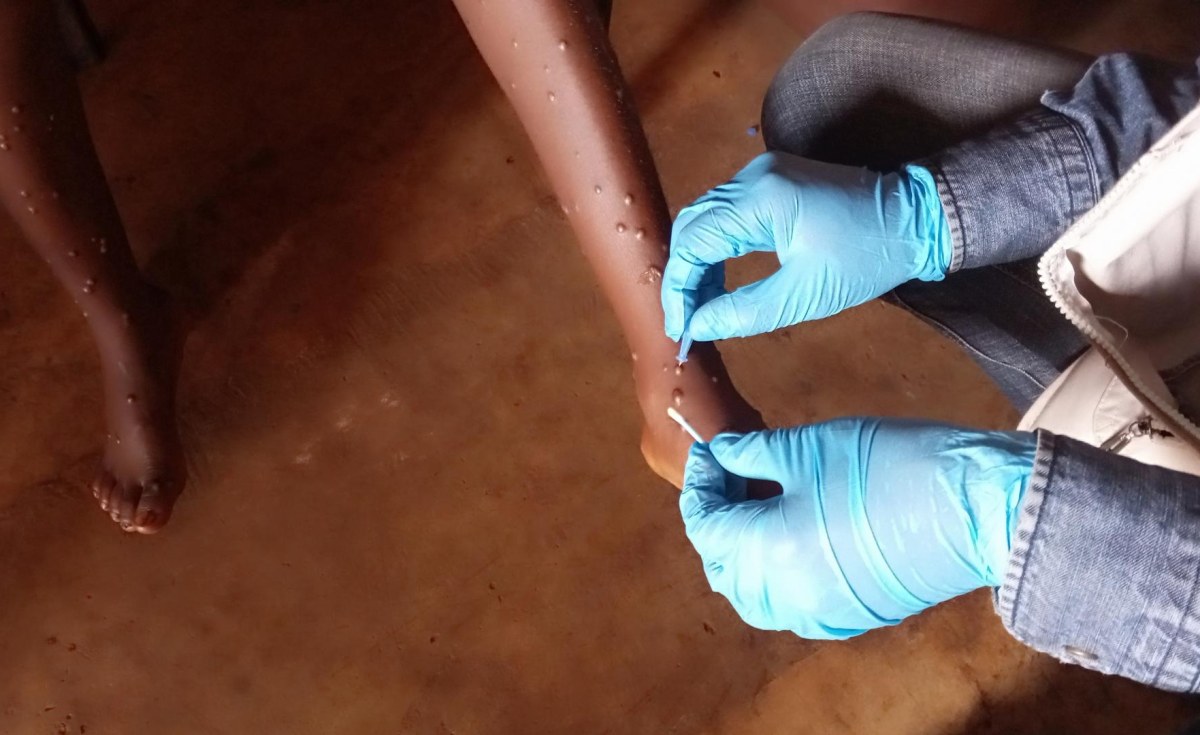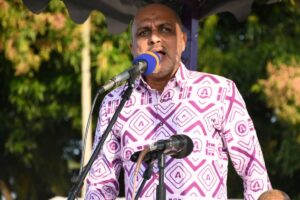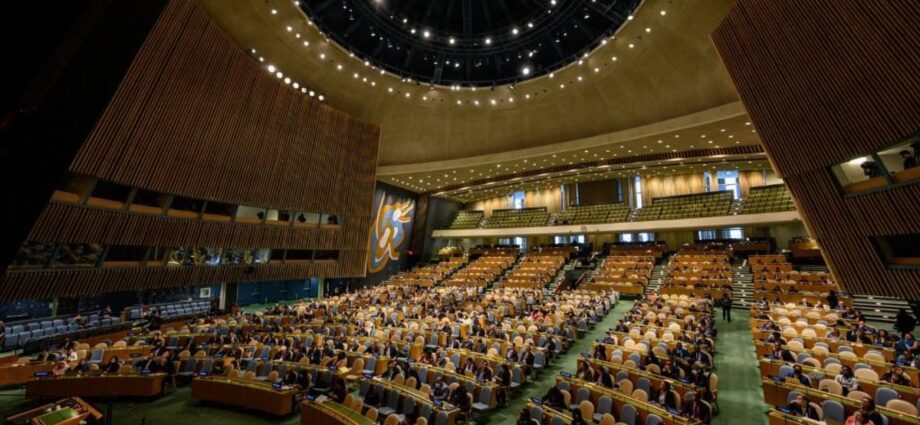In 2015, 17 Sustainable Development Goals (SDGs) were unanimously adopted by all 193 UN member states providing a shared blueprint for peace and prosperity for people and the planet, now and into the future. The SDGs build on decades of multilateral cooperation and are a universal call to action for Governments and people around the world to end poverty, protect the planet and improve the lives and prospects of everyone, everywhere by 2030.
Seven years since they were launched, the truth is that the world is not on track to deliver on the promise of the SDGs, and I believe this is a reality we must acknowledge and look to correct together.
Unfortunately, people all over the world are still feeling the impacts of Covid 19 pandemic. Also; supply chain issues, price inflation of oil, wheat and other commodities have been disrupted due to the war in Ukraine. This is not even to mention the impacts of Climate Change – an existential threat that we can all admit are not responding to at the required scale.
It is very concerning that according to the 2022 SDGs report, these interlinked crises have reversed years of progress in eradicating poverty and hunger, improving health and education, providing basic services, and much more. Tanzania’s economy has remained relatively stable in line with projections but still facing global challenges of high commodity prices, high inflation, tight financial conditions and recurrence of Covid-19.
The poor, the vulnerable and the marginalized are the ones who are most affected by these negative impacts, especially in developing countries whose economies are more fragile. As we mark this UN Day, I believe we should all be thinking about the actions that we can take to ensure that the development and economic growth are felt more by the ordinary woman, man, girl or boy at the grassroots level. I think these challenging times should make us re-focus our collective efforts to work towards more inclusive development that truly prioritizes those left furthest behind.
As the UN in Tanzania, we understand that the Government, development community, partners and general public look to us to lead by example. I am proud to say that our recently launched Cooperation Framework (2022-27) which will guide our work for the next five years, strives for inclusive development. The Cooperation Framework provides a blueprint for how the UN in Tanzania supports the country to achieve its development priorities and the SDGs. Before we had started thinking about what activities to include, we first looked at the development areas that, if invested in, could best accelerate the SDGs and improve the lives of those left furthest behind.
The UN family in Tanzania may not have the resources to invest in all of these areas, but we have identified and prioritised parts that we do have the capacity to invest in and since this development analysis was conducted with partners, we hope that it will be a useful resource that allows others to cover those areas we may have missed. This process of identifying SDGs accelerators is a good example of how the Cooperation Framework will make an even more concerted effort to bring on board different partners and stakeholders to work towards common goals.
I believe that if we all work with this principle of inclusive development in mind we can get Tanzania, Africa and the world back on track to achieving the SDGs. I ask everyone from the Government, development partners, private sector and all other stakeholders to think of how they can reach those who have been left further behind.
Zlatan Milisic is UN Resident Coordinator in Tanzania
Share this news
This Year’s Most Read News Stories

Africa: Rwanda Gets a Grip Of Marburg, But Mpox ‘Not Yet Under Control’

Monrovia — The Rwanda Minister of State responsible for Health, Dr. Yvan Butera, cautioned that while the country is beginning to see positive signals in its fight against the Marburg virus, the outbreak is “not yet over”. He, however, expressed hope that “we are headed in that direction”. The minister said the epidemiology trend, since the disease was first discovered in the country more than a month ago, is moving towards fewer cases.
Dr. Butera, who was giving updates during an online briefing yesterday, said in the past two weeks, only two deaths were recorded while 14 people recovered from the disease. He said Rwanda was expanding its testing capacity with 16,000 people already inoculated against the disease.
The priority right now, Butera said, is “rapid testing and detection”.
Marburg is a highly virulent disease transmitted through human-to-human contact or contact with an infected animal. The fatality rate of cases, which has varied over the period, is more than 50%, according to the World Health Organization. WHO said the highest number of new confirmed cases in Rwanda were reported in the first two weeks of the outbreak. There’s been a “sharp decline” in the last few weeks, with the country now tackling over 60 cases.
At Thursday’s briefing, a senior official of the Africa Centers for Disease Control, Dr. Ngashi Ngongo, said mpox – the other infectious disease outbreak that countries in the region are fighting – was been reported in 19 countries, with Mauritius being the latest country to confirm a case. He said although no new cases have been recorded in recent weeks in several countries where outbreaks occurred previously – including Cameroon, South Africa, Guinea, and Gabon – Uganda confirmed its first Mpox death. This, he said, is one of two fatalities reported outside Central Africa.
Dr. Ngashi revealed that there was an increase in cases in Liberia and Uganda. He said mpox cases were still on an upward trend.
“The situation is not yet under control.”
Source: allafrica.com

Tanzania central bank tells hotels to obtain foreign currency exchange license
BoT governor, Emmanuel Tutuba, urges tourist hotel owners and operators to obtain foreign currency exchange licences to combat the black market.Continue Reading

ACT-Wazalendo calls for withdrawal of mandatory travel insurance in Zanzibar
Starting October 1, all visitors to Zanzibar will be required to purchase a mandatory travel insurance policy costing $44 at the point of entryContinue Reading











